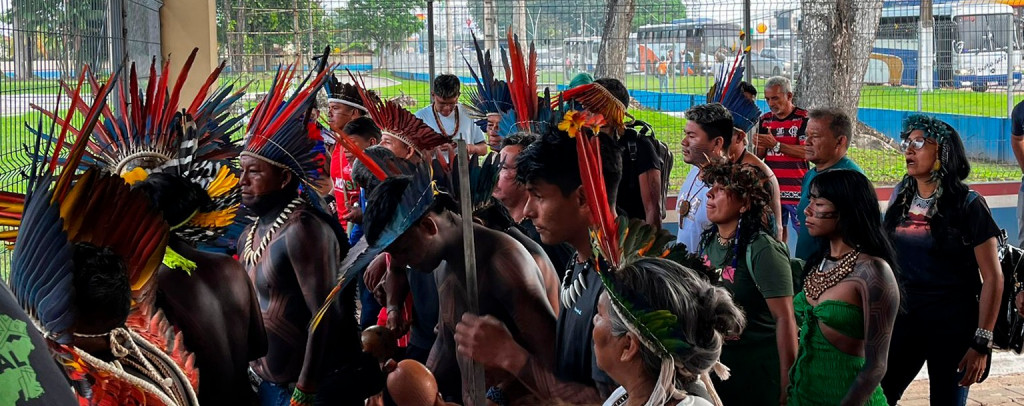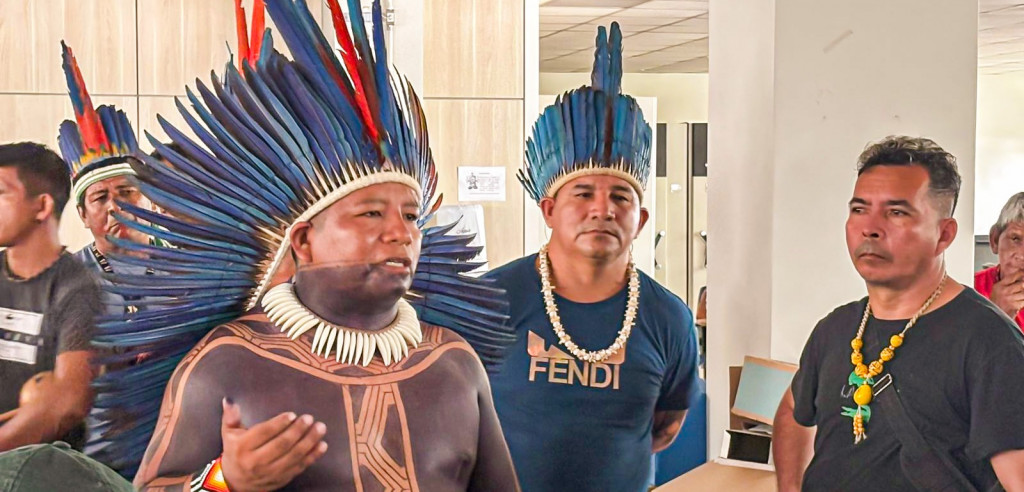Secretary of Indigenous Peoples speaks with demonstrators after ten days of protest in Brazil
24 de January de 2025

By Fabyo Cruz – From Cenarium
BELÉM (PA) – After ten days of occupation of the Pará State Secretariat of Education (Seduc-PA) in Belém, Indigenous people from various ethnic groups in the state made direct contact with the Minister of Indigenous Peoples, Sonia Guajajara, to discuss the impacts of Law 10,820/2024. The law, sanctioned by Governor Helder Barbalho (MDB), has been criticized for revoking key provisions that ensured the operation of the Modular Education System (Some) and its Indigenous branch (Somei).
The call with the minister was facilitated by Uilton Tuxá, Acting Secretary of the National Secretariat for the Coordination and Promotion of Indigenous Rights (Seart), following demands from the movement. During the conversation, Luana Kumaruara, an Indigenous leader from the Tapajós region, described the precarious conditions faced by teachers and the devastating impact of the new legislation.
“If [Governor Helder Barbalho] removes this benefit from teachers, who already pay out of their own pockets to travel, build dormitories, and support communities, there won’t be any teachers willing to sustain the system. […] There are over 400 of our people here. Yesterday, 160 quilombolas joined us, and tomorrow, two more buses are arriving. This movement will only grow if the governor doesn’t face us. […] Now, it’s not just about Indigenous education. It’s about the Amazon. We’ve always been forgotten in the North”, stated Luana Kumaruara.
She also warned of the risk of police violence against the protesters, which include elders, pregnant women, and children, and called for support to prevent confrontations. “I’m concerned that the police might come in here […] and arrest our leaders,” she said.
Demands
The protesters are demanding the repeal of Law 10,820/2024, which replaced specific regulations with state decrees, creating legal uncertainty for Indigenous education. The measure could lead to the implementation of remote education in hard-to-reach areas, undermining the face-to-face model of Some and Somei.

The Articulation of Indigenous Peoples of Brazil (Apib) has filed a Direct Action of Unconstitutionality (ADI 7778) with the Supreme Federal Court (STF), requesting the suspension of the law. The action, submitted to Justice Cármen Lúcia, argues that the legislation disrupts policies ensuring in-person education for Indigenous and traditional communities.
Judicial Decision
On January 22, Federal Judge Lucyana Said Daibes Pereira ordered the partial evacuation of the administrative building of the Pará State Department of Education within 12 hours. The decision by the Federal Regional Court of the 1st Region (TRF1) followed a formal request by the Pará State Government. According to the court order, the occupation has hindered the essential activities of the department and disrupted public education services.

The judge ruled that the protesters may remain only in the external areas of Seduc-PA, such as the auditorium and cafeteria, but prohibited access to administrative spaces. In case of non-compliance, the decision imposes a fine of R$2,000 per hour. The injunction has caused apprehension among the protesters, especially given the history of violence in eviction operations. The occupation includes people of all ages, including elders, children, and pregnant women, heightening the risks of any confrontation with law enforcement.

